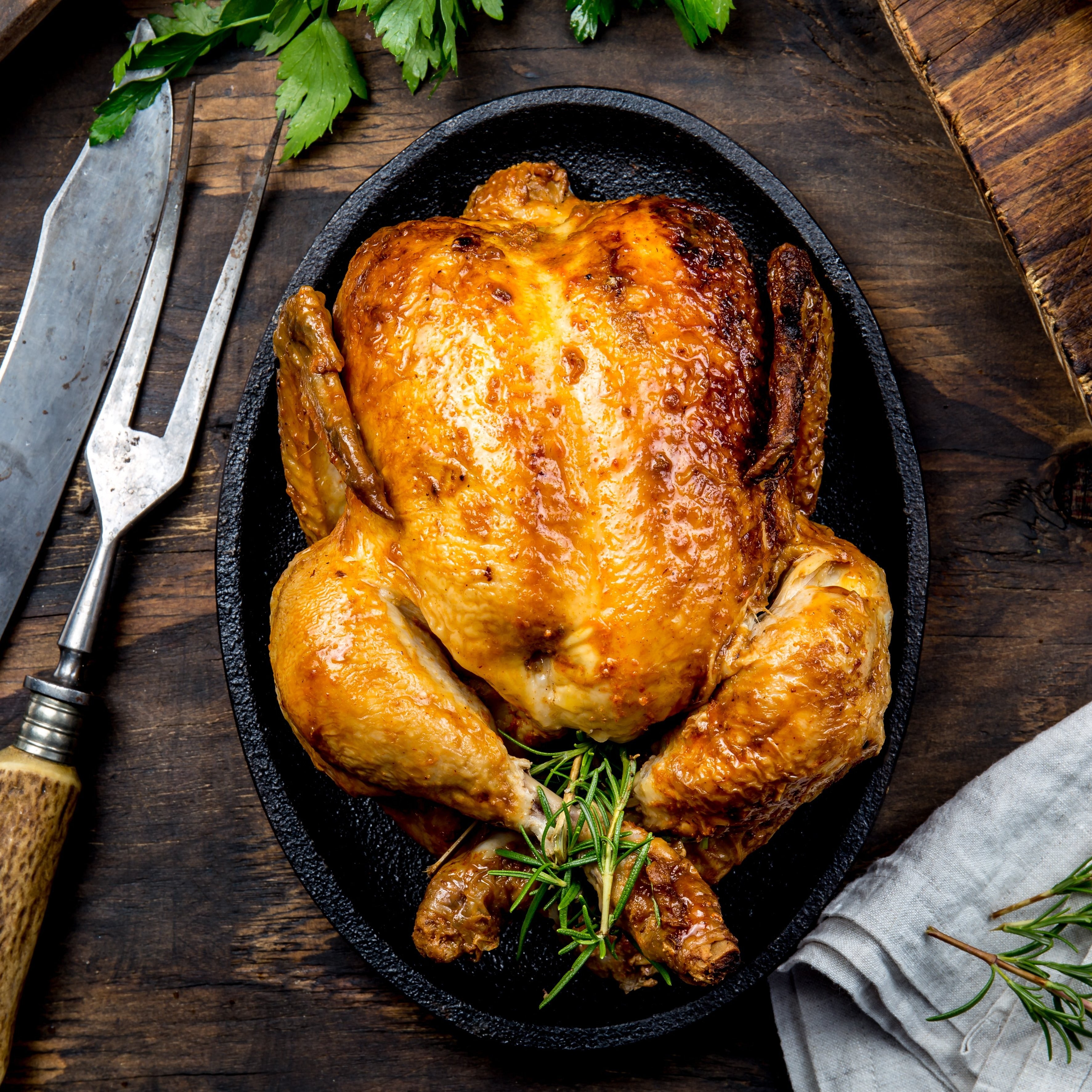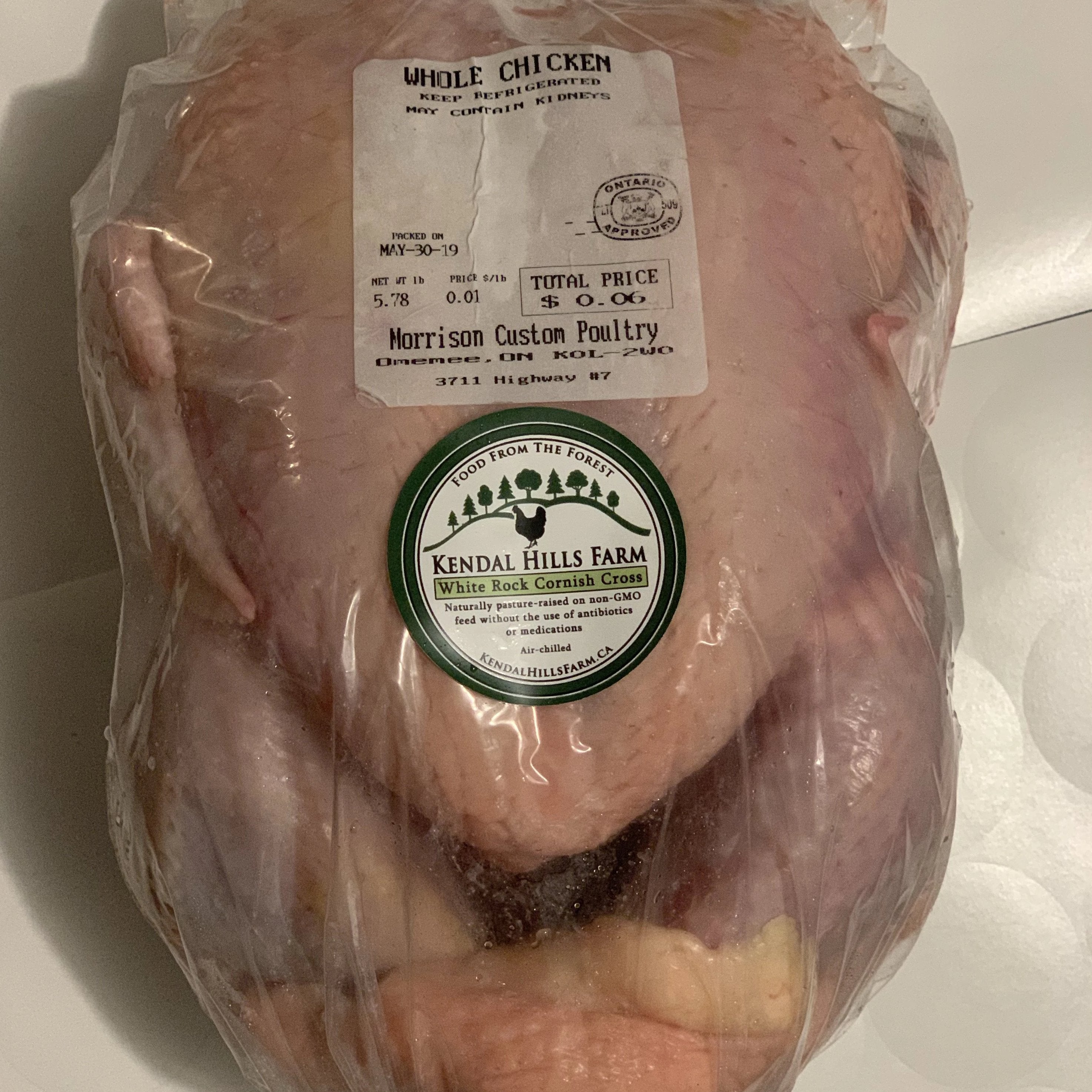Pastured. Sustainable. Non-GMO Feed.
Our chickens are raised on pasture, free to roam during the day and roost in the evenings. In addition to foraging for grubs and insects, we feed our birds 100% non-GMO, non-medicated feed.
More about these chicken:
Artisanal: Normally to raise more than 300 chickens you need quota (the 'license' to farm chicken). Chicken Farmers of Ontario introduced a new program called the Artisanal Chicken Program so that farmers could raise up to 3,000 to a higher standard (ex. free-range & organic). We are proud to be one of the first farms in this program!!
Variety: White-rock chickens are known for their meat. We raise ours until they were nice and big (about 5lbs dressed)
Feed: Raised on a diet of what they forage on pasture and non-genetically modified grains.
Environment: At 3-4 weeks, when they have their adult feathers, they move out of the brooder building and on to a grassy pasture. In Ontario, to call something free-range you would be allowed 54,500 birds per acre (give or take a thousand...but at that point, who is counting?). In Europe it's 400 birds per acre and in Australia it's 600. We were working with some existing pastures, and so ours are 650 this year.


